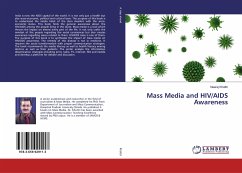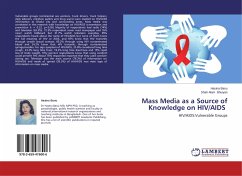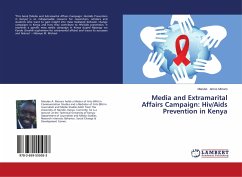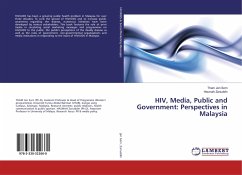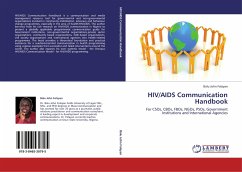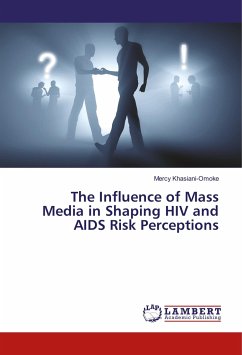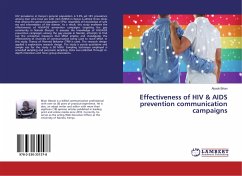
Media Usage, Personality Traits and Attitudes to Hiv/Aids
A Study of Agriculture Students in Selected Universities in South-West Nigeria
Versandkostenfrei!
Versandfertig in 6-10 Tagen
39,99 €
inkl. MwSt.

PAYBACK Punkte
20 °P sammeln!
The Acquired Immune Deficiency Syndrome (AIDS) caused by Human Immuno Deficiency Virus (HIV) has been a major disease plaguing the humanity as a whole and African continent in particular. The continent has remained a global epicentre of the AIDS pandemic. Available statistics show that the sub-saharan African is worst hit, with an estimated 22 million adult and children living with the virus. With just 10% of the world s population, sub-saharan African is home to more than 67% of all people living with HIV. Nigeria, African most populous nation is firmly established as having the world s third...
The Acquired Immune Deficiency Syndrome (AIDS) caused by Human Immuno Deficiency Virus (HIV) has been a major disease plaguing the humanity as a whole and African continent in particular. The continent has remained a global epicentre of the AIDS pandemic. Available statistics show that the sub-saharan African is worst hit, with an estimated 22 million adult and children living with the virus. With just 10% of the world s population, sub-saharan African is home to more than 67% of all people living with HIV. Nigeria, African most populous nation is firmly established as having the world s third highest HIV/AIDS prevalent rate with 4million people living with the virus. Unfortunately, the large those affected with the disease fall within the range of economically active adults who are deprived of contributing towards the economic progress of the country. Apart from Agriculture, the social-economic consequences of AIDS will have long time implication for the Nigerian economy. Given the large proportion of young Nigerians and the evidence that by age 15, 25% sexual active and 50% by age 18, the youths most of who are students of higher institutions formed the most vulnerable group.




